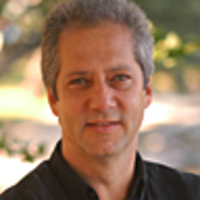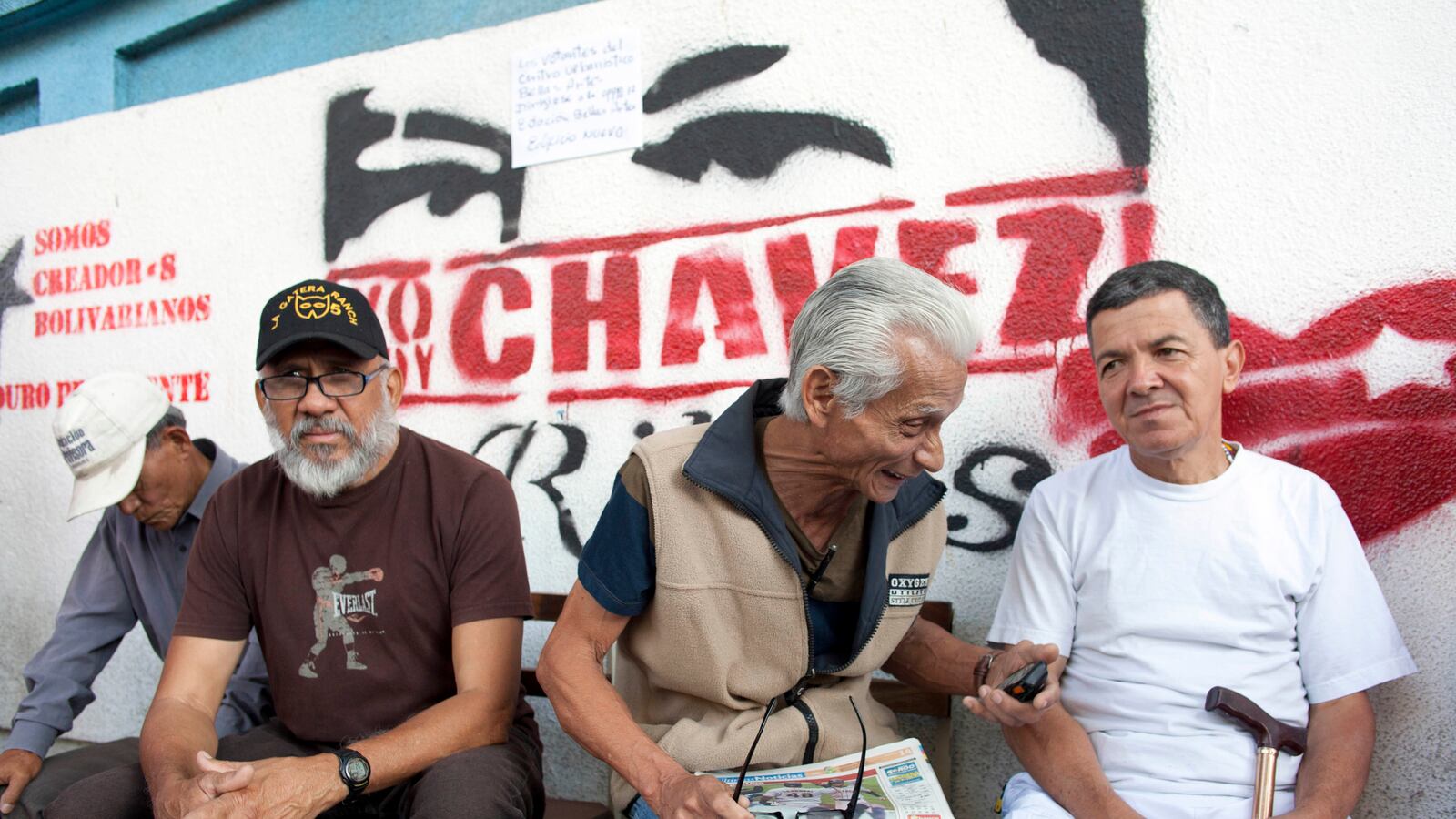For the third time in just six months, millions of Venezuelans are going to the polls today to cast a critical vote. At stake is not just who is to run Latin America's most bitterly divided nation but also the fate of the most brazen experiment in political engineering since the generalissimos and old school “caudillos” called the shots in the Americas.

For the last 14 years, the Venezuelans have known this as the revolution for 21st-century socialism. This was former president Hugo Chávez's mashup of state capitalism and vintage populism, bound together by personal charisma and petrodollars, and served up presumably with the imprimatur of the Latin Liberator, Simon Bolivar himself. But what will they call it now that Chávez is gone, killed last month by cancer, and with his Bolivarian revolution falling into economic disarray, and the country he played like a violin shaken by political dissonance not seen since the Cold War?
According to most voter preference surveys, Chávez's handpicked heir, former foreign minister Nicolás Maduro, is likely to emerge the victor. Maduro began the race with a comfortable advantage and held it throughout the short campaign. But his lead against united opposition challenger, Miranda state governor Henrique Capriles Radonski, has markedly tumbled in the last week, according to veteran political pulse taker Luis Vicente Leon, of the respected polling firm Datanalisis.
Radonski lost by a 55 to 44 percent margin to Chávez in last October's election, but gave the Bolivarian incumbent a fright by drawing 6.6 million votes, the best any challenger has done since Chávez took office in 1999. In regional elections in December, Capriles went on to trounce the official candidate, Elias Jaua, a former vice president to Chávez, for governor in key Miranda state.
The tightening race may explain the more strident tone, at times bordering on eccentricity, that Maduro has taken on since hitting the campaign trail. Just as Chávez invoked Bolivar as his polestar, Maduro never missed the chance to tout his mentor, whose death after a 20-month bout with cancer caused a national commotion. Chávez’s cortège, which saw a flag-draped coffin paraded (empty, according to some reports) through the streets last month, was practically a beatification.
The late leader’s outsize image festoons the country's streets and buildings and framed Maduro at every campaign rally. In one rally, Maduro even claimed that Chávez appeared to him as a bird. He also charged that the United States “inoculated” Chávez with a fatal tumor.
In the lightning, 10-day campaign, Maduro also groused about the opposition's supposedly "unfair advantage" and accused a "media dictatorship" backed by “imperialists” of conspiring against him. Just who the media dictators were in a country where at the wave of a beret, the Bolivarian executive invaded the national television spectrum to air campaign spots thinly veneered as public-interest messages, he did not say.
In reality, today’s race, where 19 million Venezeulans are eligible to vote, is Maduro’s to lose. Since Chávez addressed the nation in early December, before flying to Cuba for a fourth and final round of cancer surgery, the chavistas have held the upper hand. The chavistas micromanaged his hospital bulletins, now reporting he was healing, now allowing he was fighting for his life. At the same time, they gamed the constitution by installing Maduro, Chávez’s explicit choice for successor, as acting president, although by law Chávez ought to have been replaced by congressional leader, Diosdado Cabello.
Whether Maduro can convert that head start into a mandate and then fill the former paratrooper’s boots at the Miraflores Palace is another story. It was one of the uncanny rules of the Chávez era that the man this nation of 28 million knew and largely revered as El Comandante was always far more popular than his Bolivarian experiment proved to be. And as sympathy for the stricken president soared in his final months—he polled a record 7.5 million votes in October—his revolution just as clearly was threatening to unravel.
Street crime spiked, turning Venezuela, with more than 70 murders per 100,000 residents, into the most dangerous country in South America. Inflation, now pushing 28 percent, is the worst in the hemisphere. Store-bought goods like milk and toilet paper are scarce and dear. “The currency is out of control. There is no investment,” says Alberto Ramos, an analyst at Goldman Sachs.
For a brief moment last year, with Chávez ill and increasingly absent, all the talk in the financial markets was over the easing of political tensions in Venezuela and a rapprochement between Caracas and world investors. Venezuelan bonds rallied strongly and the smart money was on Maduro, a former foreign minister, who often put out diplomatic fires that Chávez lit, reinventing himself as a pragmatist.
That hope has faded now, and if anything, Maduro, who has neither the personal charisma nor the Machiavellian savvy to contain the warring strains of chavismo, has taken an even harder line. “Chávez, whether you liked him or not, was a master at getting everyone to follow him,” says an executive at a prominent media company, who asked not to be identified. “There is no one with that ability today. If anything, we can expect a harder line from chavismo.”
Such opinion has fueled comment that there can be “no chavismo without Chávez,” as Venezuelans say. In this view, Maduro may win but will be hard-pressed to govern. And yet that may be too simple.
Though the test of government still remains, Chávez’s political heirs have taken care to present a united front, papering over the storied antagonisms that marked El Comandante’s “divide-and-rule” style of political management. But many skeptics ignore the powerful system of pork and perks that sustained the Bolivarian machine, fueled by Venezuela’s fabulous oil revenue.
“Chavez built a system in which state power is strongly concentrated in hands of the presidency, which has fewer restraints than any other regime in the Americas except Cuba,” says economist Francisco Rodriguez, chief Andean analyst for Bank of America Merrill Lynch. “Some 62 percent of oil revenues are directly administered by the president without any mechanism of oversight. It’s not difficult to maintain unity with resources like these.”
Flush with oil money, and free from the prying eyes of congress or society, the Venezuelan chief executive has powerful political tools to wield. “The threshold of political savvy necessary to create a system like this is much greater than what is needed to maintain it,” Rodriguez adds.
And that could be a boon for any leader, whoever emerges as the winner from today’s balloting.






